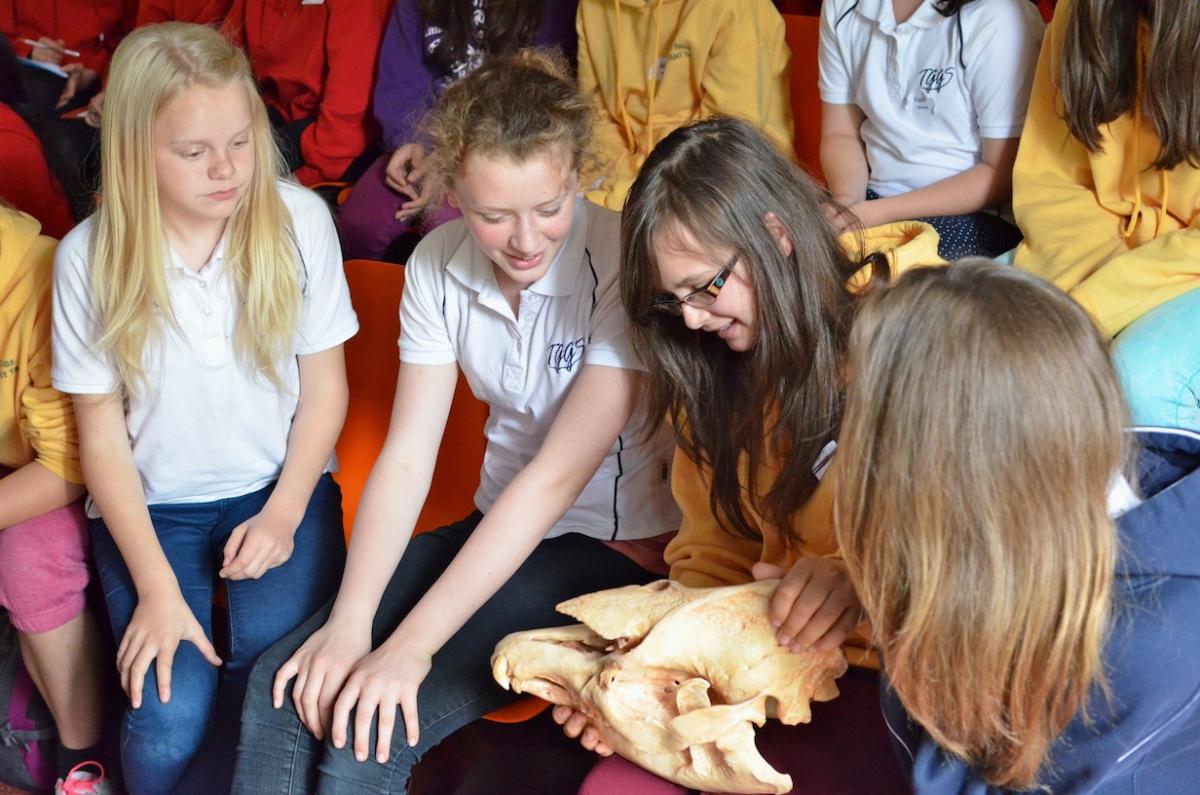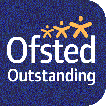
30 Shiphay Lane, Torquay TQ2 7DY
E: admin@tggsacademy.org
T: 01803 613215
Y7-11 Absence Line: 01803 653 750
30 Shiphay Lane, Torquay TQ2 7DY
E: admin@tggsacademy.org T: 01803 613215
Y7-11 Absence Line: 01803 653 750

Biology at TGGS
Current Teaching Staff:
Mrs K Bumby - Head of Department
Dr D Halliday, Mrs N LeFlaive, Mrs S Faro, Mrs J Kittow
Curriculum Intent:
In the biology department at TGGS, we endeavour to develop inquisitive biologists that apply developed scientific knowledge and practical capabilities to articulate scientific understanding and use this to critically analyse the living world.
Through the delivery of a challenging and engaging curriculum we inspire curiosity within our students about the natural world, instilling a greater appreciation and awareness of current and potential issues of life on Earth.
Our curriculum empowers our students to make informed decisions and facilitates them to investigate further studies and potential careers within the biological field.
Subject Overview
In Year 7, students study: Cells, Reproduction, Producers, Ecosystems
In Year 8, students study: Diet and Digestion, Respiration and Exercise, Inheritance and Evolution, Bigger Picture
There are assessments each half-term at Key Stage 3 that have a range of question types and detailed feedback is given on the development of knowledge and skills.
Our KS4 Biology curriculum is designed to develop inquisitive scientists that can apply scientific literacy throughout there everyday lives to become critical thinkers. Our curriculum, practicals and extra curricular activities all aim to inspire curiosity within our students about the world and potential issues. Through discussions, hands on activities and group work we aim to upskill and empower our students to be true global citizens while preparing them academically for the GCSE.
In Year 9 students have 1 period of Biology a week and cover a range of fundamentals that relate to the whole GCSE and aid understanding. This is then followed by two years covering the more in depth knowledge over 5 periods (triple) or 3 periods (combined trilogy) a fortnight.
Topics:
Year 9: Cells; Organisation and digestion; Respiration; Health
Year 10: Immunity; Nerves; Hormones; Plants and the environment
Year 11: Homeostasis; Variation and Inheritance.
There are 6-8 core assessment pieces per year at Key Stage 4 after each unit; feedback and reflection time after each highlights misconceptions, gaps and areas of expertise. Verbal feedback is given during lessons regularly. Students are given time develop their knowledge and skills in response to this feedback.
SMSC
Biology contributes to our students’ SMSC development through:
Spiritual Education:
- The search for a deep understanding of natural and physical phenomena.
- The appreciation of inter-dependence and biodiversity develops the students’ ability to be reflective about their own beliefs and their perspective in life.
- The sense of enjoyment and fascination in learning about the beauty of natural objects and phenomenon allows them to use their imagination and creativity to offer up explanations which demonstrate their willingness to reflect on their experiences.
- The belief that one of the roles of science is to pursue the truth of fundamental ideas such as evolution
Moral education
- Discussion of issues such as IVF, that allow the students to develop their ability to recognise the difference between right and wrong, while appreciating conflicting viewpoints and developing open mindedness, making judgements on evidence not prejudice.
- Discussions on scientists involved with discoveries such as Mendal, Crick and Watson
Social
- The development of practical skills to imitate the work carried out by real scientists in line with the scientific method approach.
- The development of social skills in a range of different contexts including working with groups of students from a variety of religious, ethnic, and socio-economic backgrounds.
- The students take full responsibility for their own and other people’s safety by carrying out risk assessments.
- The benefits and drawbacks of scientific developments are considered with an emphasis on the social responsibility involved.
Cultural
- the understanding and appreciation of the range of cultural influences that have shaped our understanding of the world around us.
- Core to the study of biology, is the interest in exploring and improving the understanding of phenomena, while appreciating the cultural diversity and different religions that have contributed locally, nationally, and globally.
Examples of Spiritual, Moral, Social and Cultural Education in Biology at TGGS may include: -
- British Science Week - to look at the development of modern technologies
- The appreciation of a national shortage of specialists and its economic impact
- The importance of research e.g., stem cells as a possible cure for diseases.
- Food webs and the impact an organism can have on a range of species
- Impacts of smoking and the laws surrounding smoking in public
- Impact of pollution on our planet
- sustainability
British Values
British values Examples from GCSE Biolog.
Rule of law
- Genetic testing and genetic engineering as applications of science that have made a positive difference to people’s lives
- Discussion around risks, benefits, ethical issues and regulations associated with gene technology
Democracy
- How have the laws come about, e.g., pressure from the public, politicians and media for safe products? Use of democratic process to enable or restrict scientific developments, e.g., methods of energy production, genetic engineering.
Individual liberty
- Limitations on freedom through health and safety legislation and the rules of the laboratory to ensure safe practice
- Career and education choices that students make and limitations on these freedoms, e.g., exam results
- Individual freedom to accept or use life support in maintaining circulatory and respiratory systems;
- Individual freedoms to decide whether to donate organs for transplantation
- Individual freedom to use or not use birth control
- Individual freedom to have genetic screening
- Individual lifestyle choices that influence health
Tolerance and mutual respect of different faiths and beliefs and promotion of the Equality duty
- The approaches to solving scientific problems that are part of GCSE Biology qualifications require students to show tolerance and mutual respect in relation to:
- Behaviour in the laboratory and classroom
- Creation of an effective working environment through tolerance and mutual respect
Health and safety:
- Understanding of the influence of different faiths and beliefs in some decisions which impact on science and healthcare
Reading
Over the course of our students time studying Biology we work on development of keywords and comprehension of scientific writing through scaffolding and guided practice.
Oracy
In Biology we support the development of Oracy by:
Encouraging students to ask questions in science.
Using key words in science.
Promoting small group discussion in science.
Careers
We use three different approaches to careers in the curriculum:
1) We highlight the relevance of the subject to future careers and opportunities.
2) We set curriculum learning within the context of careers and the world of work.
3) We deliver curriculum learning through employer encounters, experiences of work and/or extra-curricular opportunities.
Character skills
Biology gives the students a fantastic chance to embed our school values into their learning.
Leadership opportunities are given within the department at both KS4 and KS5. Our prefects and ambassadors run open evenings, competitions and help younger students.
In lessons, learning and practical’s are carried out using team work, giving students the chance to improve on their teamwork skills on a weekly basis.
Students are encouraged to aim high in all situations within Biology, from learning beyond the specification, discovering a passion for the subject and aiming to deeply reflect on their learning to strive forward.









